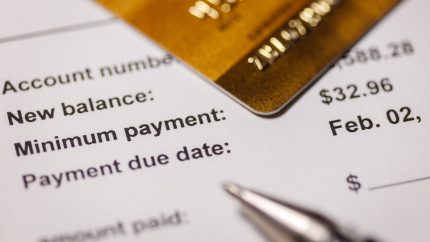4 financial moves that could make or break your stability right now
With interest rates high and economic headwinds signaling uncertainty, financial stability should be your highest priority.

After several ominous years, there is still talk that a recession might be on the way by the end of the year. While the Fed may say otherwise, there are economists who definitely believe we should brace ourselves for some level of increased financial volatility. But whether we end up in a recession or not, what we are dealing with right now is inflation, high consumer goods, high gas prices, and high interest rates.
This is definitely not the time to play “business as usual” with your finances. It’s crucial to pay attention to your spending, pay down debt, and stick to a scaled-down budget. This will not only help you deal with today’s economic headwinds but also prepare you for any potential issues down the road.
With a goal of keeping more money in your pocket, here are four moves you should definitely not be making with your money right now:
1. Buying a house
During an economic downturn, houses may get cheaper due to falling demand, and with high mortgage rates, the prices may fall low enough to entice buyers and seemingly make up for the interest rates. However, those high interest rates may not only make buying a house really expensive now but could cost you more money in the long run. If you can hold off on investing in a house right now, it may be better to do so. Don’t risk increasing your housing costs — and remember, there is nothing wrong with renting until it truly makes financial sense to buy.
2. Any item that needs financing
Again, we are living amid a high-interest-rate environment, which, in turn, has affected many financial tools, including credit cards and other financing vehicles. Consequently, this phase could impact buying that expensive dishwasher or refrigerator, should you need to finance it. So deeply consider the urgency of home renovations or upgrades, including furniture, laptops and TVs. If these are purchases you may want to make but currently cannot without financing, put them off unless absolutely necessary.
3. Anything that will deplete your cash reserves
Whenever possible, you want to make sure you have cash on hand in case you need it, so consider whether you want or need to have cable TV and streaming subscriptions to Hulu, Netflix, Amazon, etc. It may not seem like a lot, but those monthly costs can add up quickly. If you are paying $200 a month between cable and streaming, that is $2,400 a year; a drain on your wallet that you may not even be aware of.
Another big waste of money is unnecessary memberships and subscriptions; for instance, that gym membership you are not using, or that meal prep delivery that repeatedly just goes bad in the back of the refrigerator. Additionally, a lot of these are automatically deducted from your account, quietly taking your money without you noticing it. Review your bank statements and see what memberships you are paying for on a regular basis, and cancel any subs that are not essential.
Remember: To remain financially stable, it’s important to save money and cut back on spending.
4. Ignoring what corporate America is doing
The job market is tightening; it’s getting harder to find a job, and layoffs have been steady, sudden and often massive. When you see corporate America restructuring, spending less and hiring less, you should be paying attention. That is a signal it is time to apply those same moves to your own financial life, spending less, saving more, and not committing to any major financial decisions right now.
Recommended Stories

Jennifer Streaks is Senior Personal Finance Reporter and spokesperson at Business Insider and a financial contributor at The Grio. A nationally recognized expert on money and affordable lifestyle living, Jennifer is an established financial columnist who has been featured on CNBC, Forbes, ABC, MSNBC, CBS, and more.
Never miss a beat: Get our daily stories straight to your inbox with theGrio’s newsletter.








